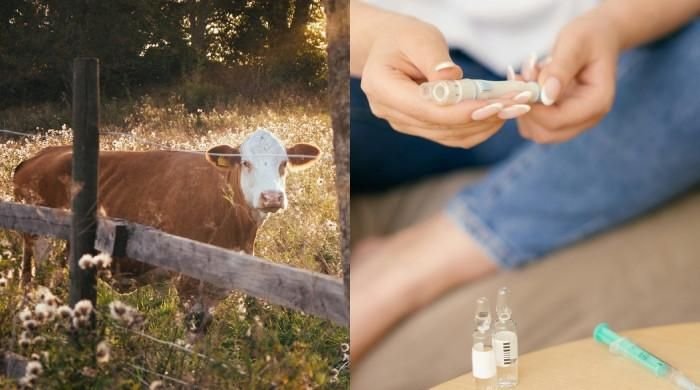In a key breakthrough in diabetes therapy, Brazilian researchers discovered a viable method for producing human insulin, which might reduce insulin shortage and make it more inexpensive.
The researchers genetically modified a cow to manufacture human insulin in its milk with the goal of making insulin more accessible and affordable, according to the New York Post.
After marking a new achievement in the medical profession, the study’s principal author and animal sciences professor at the University of Illinois stated: “Mother Nature created the mammary gland as a factory to generate protein very, really efficiently.
“We can take advantage of that system to produce a protein that can help hundreds of millions of people worldwide.”
The work, published in the Biotechnology Journal, employed genetic engineering techniques to insert a human DNA sequence that makes proinsulin into cow embryos.
Researchers from the University of Illinois Urbana-Champaign and the Universidade de São Paulo have successfully discovered a mechanism to ensure the human precursor to insulin is solely active in cows’ mammary tissues.
They discovered that the genetically modified cow produced milk that included both proinsulin and insulin, which was a “magical” achievement.







